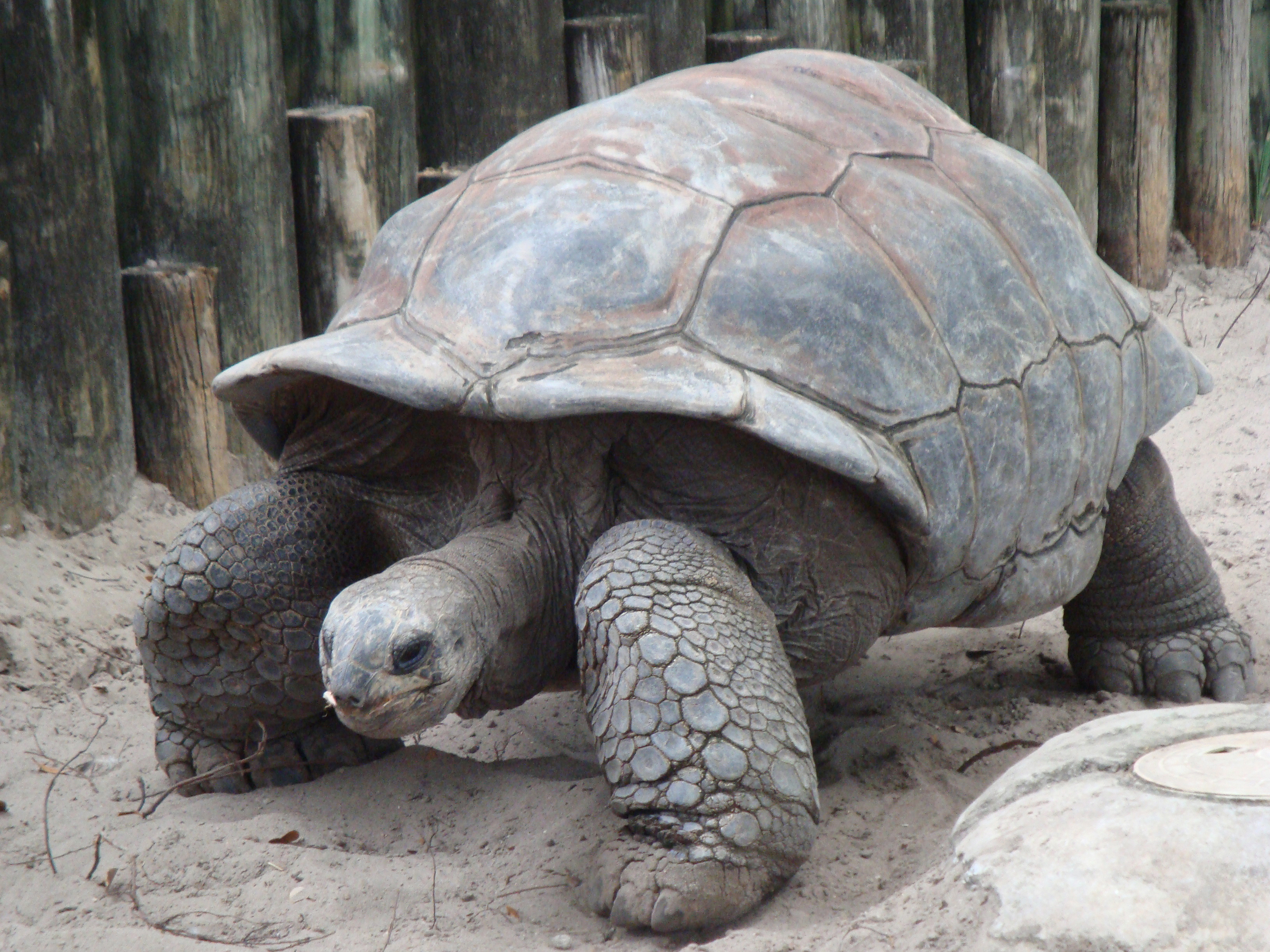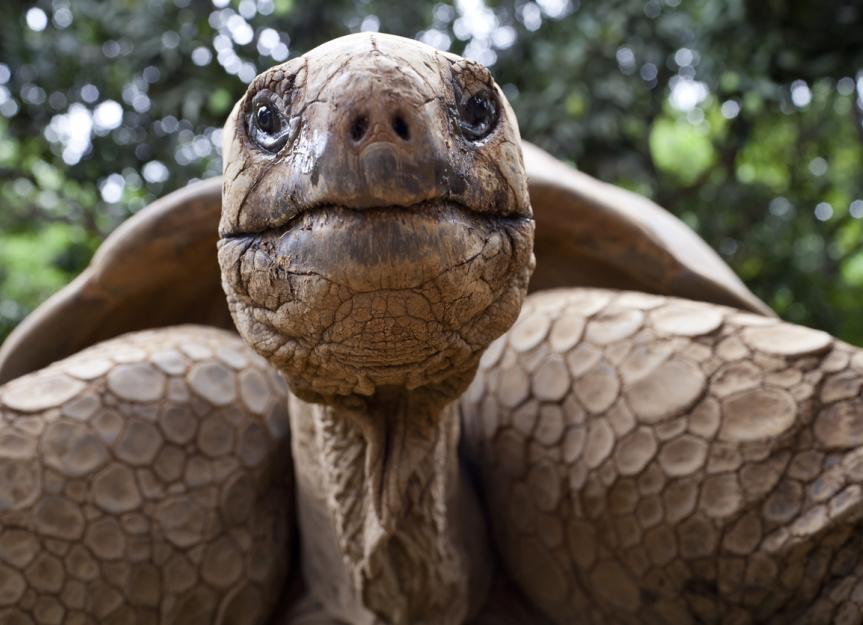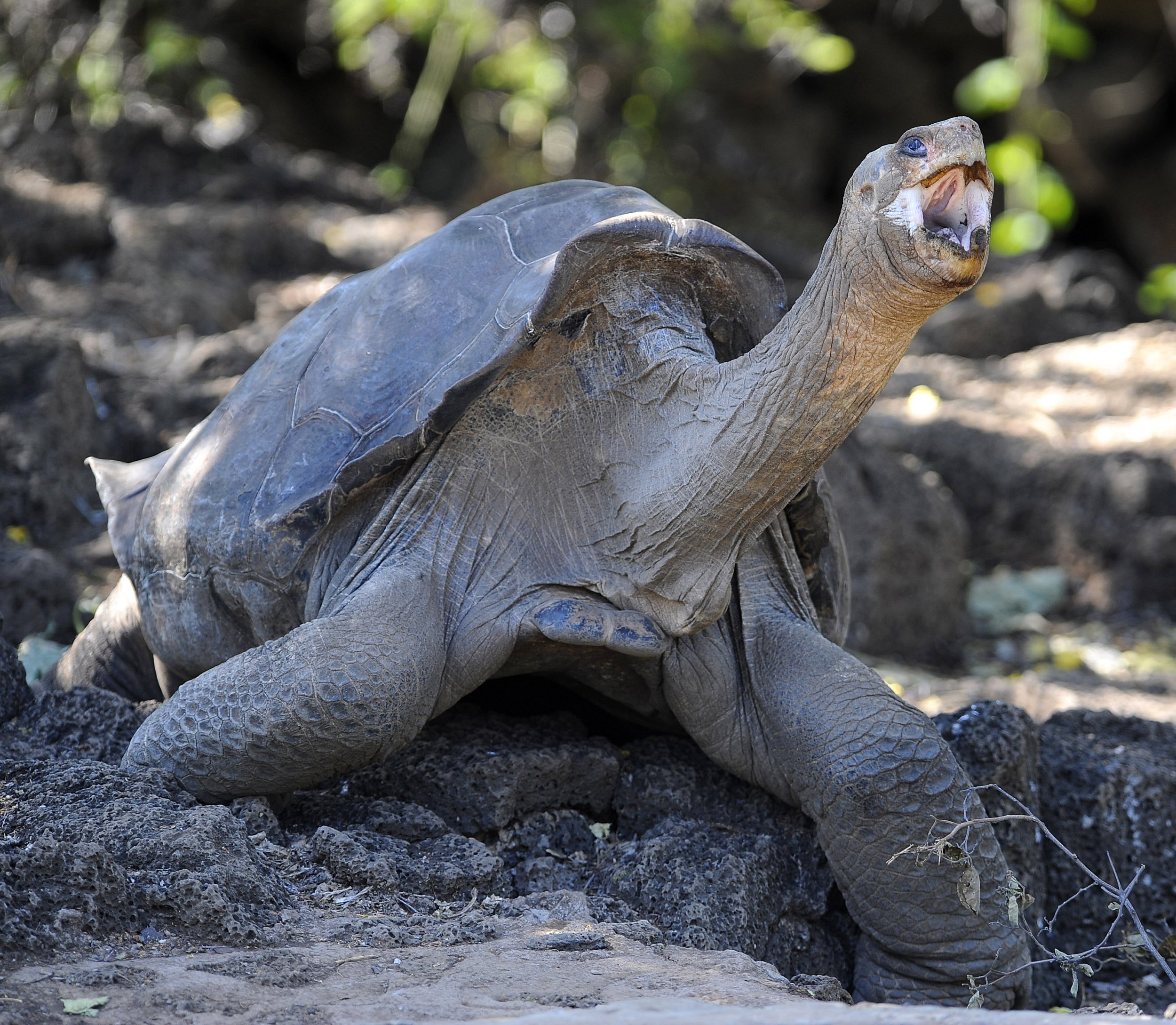Tortoises can live for 80-150 years, depending on the species. Their lifespan is influenced by factors such as habitat, diet, and predator threats.
Tortoises are known for their long life span, with some species living well over a century. Their slow metabolism and ability to survive harsh conditions contribute to their impressive longevity. Additionally, proper care and a suitable environment can help ensure that tortoises live to their full potential.
In this blog, we’ll explore the fascinating world of tortoises and provide insights on how to care for these remarkable creatures to help them thrive for many years.
Tortoise Lifespan Mysteries
Unveiling the Tortoise Lifespan Mysteries: Discovering How Long Do Tortoises Live?. These ancient creatures defy time, with some species reaching well over 100 years old. Their longevity remains a captivating enigma, adding to the allure of these remarkable reptiles.
Tortoises are known for their longevity, with some species living up to 150 years or more. However, there are still many mysteries surrounding the lifespan of these fascinating creatures. In this article, we will explore the species-specific longevity and record holders in the tortoise world.
Species-specific Longevity
Different tortoise species have varying lifespans, with some living longer than others. For instance, the Galapagos tortoise is known to live for more than 100 years, while the leopard tortoise has a lifespan of 50 to 100 years. The African spurred tortoise can live up to 80 years, while the Russian tortoise has a lifespan of 50 to 100 years.
Record Holders In The Tortoise World
The oldest tortoise on record was a giant tortoise named Adwaita, who lived in India and died in 2006 at the age of 255. Another famous tortoise was Harriet, a Galapagos tortoise who was brought to Australia by Charles Darwin and lived to the age of 175. Tu”i Malila was a radiated tortoise who lived in Madagascar and died at the age of 188. In conclusion, tortoises are known for their longevity, but the actual lifespan of each species still remains a mystery. However, with proper care and attention, these creatures can live for many decades, making them fascinating companions for those who love animals and nature.

Credit: zh.wikipedia.org
Factors Influencing Tortoise Longevity
Tortoise longevity is influenced by factors like species, habitat, diet, and genetics. Giant tortoises can live over 100 years, while others may reach 30-50 years. Proper care and a suitable environment are crucial for ensuring a tortoise’s long lifespan.
Natural Habitat And Diet
Tortoises, being ectothermic reptiles, are greatly influenced by their natural habitat and diet when it comes to their longevity. The environment in which they live and the food they consume play crucial roles in determining how long they can live.
Tortoises have adapted to various habitats around the world, including deserts, grasslands, forests, and even islands. Their natural habitat provides the necessary conditions for their survival, allowing them to regulate their body temperature and find suitable food sources.
A tortoise’s diet mainly consists of vegetation, including grasses, leaves, flowers, and fruits. Some species may also consume insects and small invertebrates. Their diet is rich in fiber and low in protein, which helps maintain their overall health and longevity.
Predation And Survival Strategies
Predation is another factor that affects the longevity of tortoises. As slow-moving creatures, they are often targeted by predators in their natural habitats. However, tortoises have developed various survival strategies to increase their chances of living longer.
One strategy is their protective shell, which acts as a shield against potential threats. The hard outer shell provides them with a strong defense mechanism, making it difficult for predators to harm them. Additionally, tortoises have the ability to retract their head, legs, and tail into their shell, further reducing their vulnerability to predation.
Furthermore, tortoises have a slow metabolism, allowing them to conserve energy and survive in environments with limited food resources. They can also withstand long periods without water, relying on their ability to store water in their bodies.
In conclusion, the factors influencing tortoise longevity include their natural habitat and diet, as well as their predation and survival strategies. Understanding these factors can help us create suitable environments for tortoises in captivity and ensure their well-being in the wild.
Aging Gracefully: Signs And Stages
Tortoises have a long lifespan, with some species living for over 100 years. As they age, they exhibit signs such as slowed movement, loss of appetite, and changes in shell color. Understanding the stages of their life can help us appreciate their graceful aging process.
Tortoises are known for their longevity, with some species living up to 100 years or more. As they age, tortoises go through various stages of development and display certain signs that indicate their age. Understanding these stages and signs can help you provide proper care for your pet tortoise and ensure they live a long and healthy life.
Growth Rate And Maturity
Tortoises grow slowly and reach maturity at different ages depending on their species. For example, a Russian tortoise may take up to five years to reach maturity, while a Galapagos tortoise may take up to 20 years. During their growth period, tortoises need a balanced diet and proper living conditions to ensure healthy development.
Indicators Of Aging In Tortoises
As tortoises age, their appearance and behavior change. Some common indicators of aging in tortoises include:
- Loss of vibrancy in their shell color
- Appearance of growth rings on their shells
- Decreased activity and movement
- Loss of appetite and decreased feeding
- Development of eye problems such as cataracts
- Slowed metabolism and digestion
It’s important to note that some of these indicators may also be signs of illness or other health issues, so it’s essential to monitor your tortoise’s behavior and seek veterinary care if necessary. In conclusion, understanding the signs and stages of aging in tortoises is crucial for providing proper care and ensuring they live a long and healthy life. By monitoring your tortoise’s development and behavior, you can help them age gracefully and enjoy their golden years.

Credit: www.petmd.com
Tortoise Care For Longevity
Tortoises are fascinating creatures that can live for a remarkably long time if provided with proper care. By understanding their optimal nutrition needs and creating a safe environment, you can ensure that your tortoise thrives and enjoys a long and healthy life.
Optimal Nutrition
Proper nutrition is crucial for the longevity of your tortoise. Here are some key points to consider:
- Provide a balanced diet consisting of fresh vegetables, fruits, and leafy greens. These should make up the majority of your tortoise’s diet.
- Include a variety of calcium-rich foods such as calcium supplements, cuttlebone, and dark leafy greens to support healthy shell growth and prevent metabolic bone disease.
- Avoid feeding your tortoise high-protein or high-fat foods, as these can lead to health issues.
- Ensure your tortoise has access to clean, fresh water at all times. Some tortoises also benefit from occasional soaking to maintain hydration.
Creating A Safe Environment
Creating a safe and comfortable environment is essential for the well-being and longevity of your tortoise. Consider the following factors:
- Provide a spacious enclosure that allows your tortoise to move freely. The size of the enclosure should be suitable for the specific species of tortoise you have.
- Ensure the enclosure has both a warm basking area and a cooler area, allowing your tortoise to regulate its body temperature.
- Use a substrate that is safe and easy to clean, such as reptile carpet or coconut coir.
- Provide hiding spots and enrichment items, such as rocks, logs, and plants, to mimic the natural habitat of your tortoise.
- Regularly clean the enclosure to maintain a hygienic living environment for your tortoise.
By focusing on optimal nutrition and creating a safe environment, you can provide your tortoise with the care it needs to live a long and fulfilling life. Remember to consult a veterinarian specializing in reptiles for specific dietary recommendations and additional care guidelines.
Common Health Concerns
Tortoises are known for their long lifespans, but like any pet, they can be susceptible to various health concerns. It’s essential for tortoise owners to be aware of common health issues and to take proactive steps to prevent and address them.
Disease Prevention
Proper habitat maintenance is crucial for preventing diseases in tortoises. Ensure that the enclosure is clean and well-ventilated, and maintain optimal temperatures to prevent respiratory infections. Regularly clean and sanitize food and water dishes to prevent the spread of bacteria.
Veterinary Care And Regular Check-ups
Regular veterinary check-ups are essential for maintaining the health of a tortoise. A reptile-savvy veterinarian can perform routine examinations and provide guidance on proper nutrition and environmental conditions. Early detection of health issues is key to ensuring a long and healthy life for your tortoise.

Credit: www.newsweek.com
The Role Of Genetics
Tortoises’ lifespan is largely determined by genetics, with some species living over 100 years. Genetic factors play a crucial role in dictating the longevity of these fascinating reptiles. Different tortoise species have varying genetic predispositions that influence their lifespan.
Inherited Traits
Genetics play a crucial role in determining the lifespan of tortoises. Inherited traits can greatly influence how long a tortoise will live. Just like humans, tortoises inherit certain characteristics from their parents that can affect their overall health and longevity. These traits can include physical attributes, such as shell shape and size, as well as internal factors like immune system strength and disease resistance. It is important to understand that not all tortoises are created equal when it comes to genetics and lifespan.
Breeding And Lifespan
Breeding practices also have an impact on the lifespan of tortoises. When selecting tortoises for breeding, it is essential to consider their genetic background and overall health. Breeding tortoises with strong genetics and minimal health issues can increase the chances of producing offspring with a longer lifespan. Conversely, breeding tortoises with genetic predispositions to certain diseases or health problems can result in offspring with shorter lifespans. Careful selection of breeding pairs can help ensure the longevity of future generations of tortoises.
| Factors Affecting Lifespan | Effects |
|---|---|
| Strong Genetics | Increased lifespan |
| Weak Genetics | Decreased lifespan |
| Good Breeding Practices | Positive impact on lifespan |
| Poor Breeding Practices | Negative impact on lifespan |
In conclusion, genetics play a significant role in determining the lifespan of tortoises. Inherited traits, such as physical attributes and internal factors, can greatly influence how long a tortoise will live. Additionally, careful breeding practices can help ensure the longevity of future generations of tortoises. By considering genetics and selecting breeding pairs wisely, tortoise owners can increase the chances of raising healthy tortoises with extended lifespans.
Conservation Efforts
Conservation efforts play a crucial role in ensuring the long-term survival of tortoise species.
Protecting Natural Habitats
Preserving natural habitats is essential for tortoise survival.
- Prevents habitat destruction.
- Controls human encroachment.
Captive Breeding Programs
Captive breeding programs contribute significantly to increasing tortoise populations.
- Ensure genetic diversity.
- Provide a safe environment for breeding.
Tortoises In Captivity Vs. The Wild
Lifespan Comparisons
In captivity, tortoises can live longer due to controlled environments.
Wild tortoises face more challenges in terms of predators and food scarcity.
Challenges To Longevity In Different Settings
- Captivity: stable environment, regular food, no predators.
- Wild: predation, competition for resources, harsh conditions.
Frequently Asked Questions
How Long Do Tortoises Live On Average?
Tortoises have a long lifespan, with many species living up to 80 years or more. Some giant tortoises can even live over 100 years in the wild.
What Factors Influence A Tortoise’s Lifespan?
The lifespan of a tortoise is influenced by various factors such as species, habitat, diet, and healthcare. Providing proper care and a suitable environment can help enhance their longevity.
How Can I Ensure My Tortoise Lives A Long Life?
To help your tortoise live a long and healthy life, ensure they have a proper diet, adequate space, access to sunlight, regular veterinary check-ups, and a safe and stress-free environment. Proper care and attention are key to their longevity.
Conclusion
Understanding the lifespan of tortoises is crucial for their proper care. By knowing that they can live for several decades, we can provide them with the necessary environment and attention. With this knowledge, tortoise owners can ensure that their pets lead long, healthy lives.